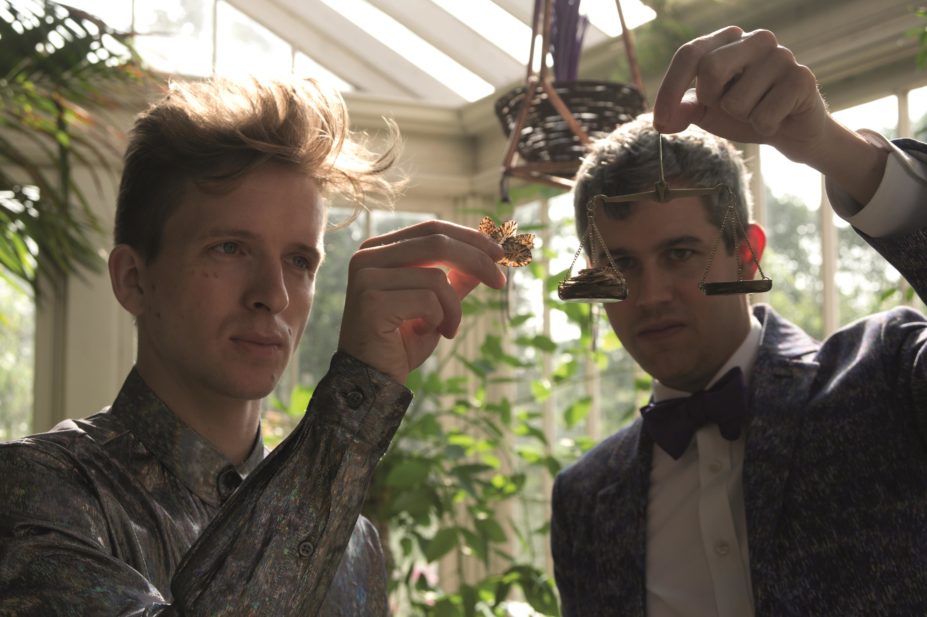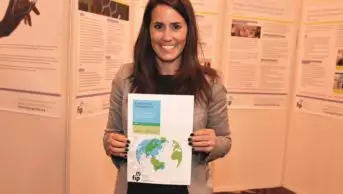
RBG Kew
Banned in the UK, the only way the a law-abiding member of the British public can get close to cannabis is if it it’s locked in a cage at the ‘Intoxicating Plants Festival’ in Kew Gardens, London.
A little information board informs the visitor that the cannabis plant on display (Cannabis sativa) is not the kind that can be used recreationally, but a similar strain that is used to make hemp fibre and other cannabis products. Each of the four weekends of the festival was themed on alcohol, cannabis, coffee or magic mushrooms.
Cannabis is one of the most famous foliage bandits. It has been used by humans since at least 2700 BC and is the only plant that produces tetrahydrocannabinol, the active agent that gets people “high”. At a talk as part of the festival, ‘Intoxicating plants: the highs and lows’, neuropsychopharmacologist David Nutt at Imperial College London, told the audience that, despite the cannabis plant’s status as a social pariah, it manufactures over one hundred different chemicals that have potential therapeutic applications in humans.
Many other plants and fungi are on display in the Princess of Wales Observatory, some are in cages and free to sit there, based on the decisions made by the UK Home Office. Displaying the coca plant (used to manufacture cocaine) was vetoed altogether, according to Monique Simmonds, director of the Kew Innovation Unit, who was talking at a ‘spoonful of science’ lecture at the festival.
The exhibition included many species that produce compounds used medicinally or recreationally. There was the poppy (Papaver somniferum), displayed in its dried form, which produces both the powerful painkiller morphine but is also used to make heroin. Then there was the peyote cactus (Lophophora williamsii) that contains the powerful hallucinogen mescaline.
Other plants on display are simply part of the fabric of everyday life, like coffee, which contains the legal high caffeine. However, none of them looked particularly noteworthy. Besides a few of the more exotic-looking plants, they are your bog-standard shrubs.
The true character of these shrubs is only revealed once they are ingested. So, as part of the festival, Kew gave visitors the chance to try some mind-altering vegetation. This is not as subversive at it sounds; all the intoxicants on offer are, at the moment, legal in the UK.
There was a botanical bar serving herbal cocktails. I went for a hot gin, rosehip, guarana and green tea concoction. I didn’t like it, but I sipped it nonetheless, drinking in as much of the experience as possible, although the effect on my senses was probably about the same as any other alcoholic drink.
The biggest draw of the festival was the plant connoisseur’s workshops run by the “architectural foodsmiths” Bompas & Parr. The workshop offered visitors the opportunity to try a more unusual intoxicating plant. All strictly above board and with a health and safety disclaimer to sign off, these tasting sessions seemed popular, with people clamouring to get a place in the next workshop. The talk was held in the Secluded Garden Greenhouse by one of the Bompas & Parr “grandmasters”, Sam, who transported visitors across the globe with a theatrical talk.
As much as Western culture has come to use alcohol and tobacco, Sam vividly described other cultures’ use of intoxicating plants as social lubricants and bonding tools.
In Fiji, the kava plant (Piper methysticum), which is illegal in the UK, is chewed, spit and mixed with water to be consumed in a communal ceremony. People’s enjoyment of mind-altering substances, it seems, is ubiquitous in every corner of the world.
At the end of the talk, small cups of blue lotus tea were passed around for the audience to sample. The tea looked like strongly steeped camomile and has a mild opiate effect. It felt subtle, similar to having a single glass of wine. Sam described its effects in detail but I couldn’t help but think that the warm wave washing over me was mostly a placebo effect or the effect of the herbal gin I’d had at the botanical bar earlier.
Regardless of whether I got a buzz at Kew, the festival was a mind-expanding exploration of mankind’s complicated relationship with the plant kingdom. In Britain, the ability of cannabis to alter our consciousness gets it locked in a cage, while tobacco and alcohol, responsible for countless deaths each year, are sold on most street corners. It is hard to see these rules as rational or evidence-based; perhaps we are not thinking straight.
